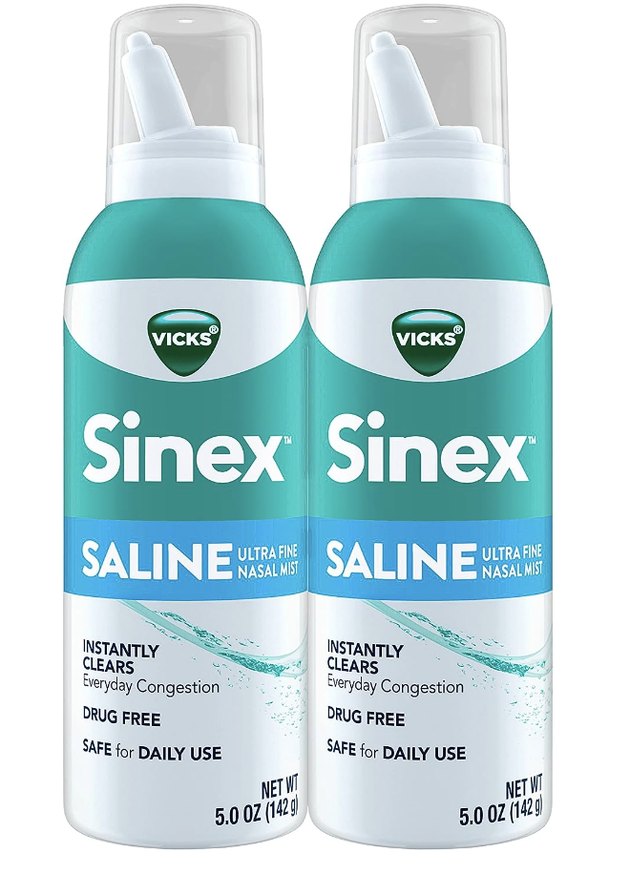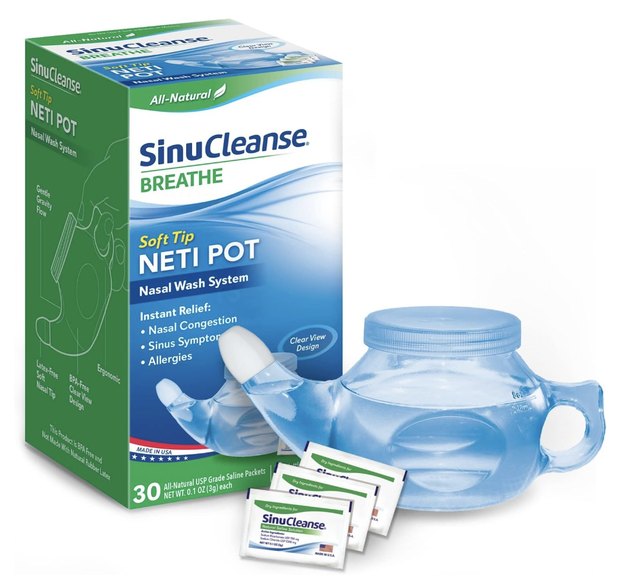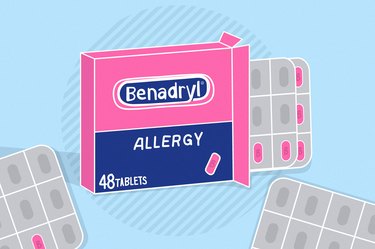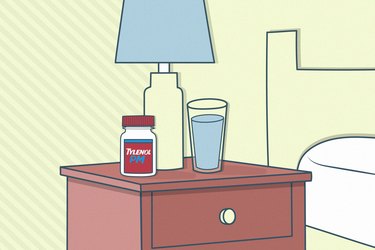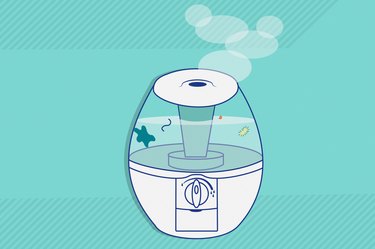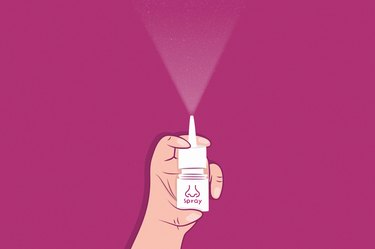
When you have a stuffy nose, a few spritzes of over-the-counter (OTC) nasal spray can usually clear you up fast.
But what happens if you have to use nasal spray every day? Is it bad to use long-term?
Video of the Day
Video of the Day
The answer depends on the kind of spray you're using. Many types can be used safely over long periods of time, but nasal decongestants like Afrin shouldn't be used for more than a few days at a time, says Rafael Cardona, MD, an otolaryngologist with ENT and Allergy Associates in White Plains, New York.
Here, learn about the types of nasal sprays that are OK to use long-term along with some alternatives to spray that can help clear your sinuses.
Types of Nasal Spray
Most nasal sprays work by reducing inflammation in your nasal passages, which can ease swelling and stuffiness, per the Cleveland Clinic.
The three basic classes of OTC nasal sprays are decongestants, steroid sprays and antihistamine sprays. Some are designed for long-term use and some aren't, Dr. Cardona says. Knowing the kind you're using can help you figure out whether to use it daily.
Here's a breakdown of each, per the Cleveland Clinic:
- Decongestant nasal sprays: These sprays reduce congestion from mild colds or the flu. They're only meant to be used for a few days at a time. Common kinds include oxymetazoline hydrochloride (Afrin and Dristan) and phenylephrine hydrochloride (Neo-Synephrine).
- Nasal steroid sprays: These are once-daily sprays that can help reduce nasal congestion caused by seasonal allergies. They can be used long-term and work best if you start taking them a few weeks before (and throughout) allergy season. Common options include fluticasone (Flonase) and betamethasone (Nasacort).
- Antihistamine sprays: These are once-daily sprays for seasonal allergies that are available by prescription. Common options are azelastine (Astepro and Astelin) and olopatadine (Patanase).
If you're unsure about which kind is best for you, talk to your primary care doctor or allergist for recommendations.
Effects of Using Decongestant Nasal Spray Every Day
It's safe (and often encouraged by allergists) to use antihistamine and steroid sprays over longer periods, like throughout allergy season, for instance.
But if you use decongestant nasal sprays over an extended period of time, you could get something called rhinitis medicamentosa — or rebound congestion, per the Cleveland Clinic.
This happens because, "the vessels in your nasal passages come to expect that amount of decongestant," in order to stay open, Dr. Cardona says. "When you stop using it, and the medication wears off, your blood vessels react by swelling up."
The result is even more stuffiness, which then makes you want to use more nasal spray. (Basically, your nose becomes reliant on it.)
This isn't exactly a nasal spray or Afrin addiction, but it can feel like it. You can't truly become addicted to decongestant nasal spray, but you can "find yourself in a scenario where you depend on the spray to avoid rebound congestion," Dr. Cardona says.
You'll likely get rebound congestion if you've used decongestants for about a week or longer and then stop suddenly, according to the National Library of Medicine (NLM). Even going back on a decongestant for a couple of days will send you back into that cycle of stuffiness and spraying, per the NLM.
If you get to this point, you can work with your doctor to slowly taper off the spray, because stopping suddenly can make your symptoms worse.
Alternatives to Decongestant Nasal Sprays
If you find that a decongestant spray is the only thing that works to clear you up (after all, it works fast and is convenient), it may feel tough to find alternatives.
You can try to use steroid or antihistamine sprays and see if they work for you. As we've learned, these sprays are OK to use long-term.
Fortunately, there are other ways to breathe easier while avoiding a nasty case of rebound congestion. Some other options to try include the following, per Dr. Cardona:
- Oral decongestants: If you want to stick with a decongestant medicine for fast, long-lasting relief, an oral option like pseudoephedrine is a better choice, says Dr. Cardona. It works similarly by reducing nasal swelling and stuffiness, but without causing rebound congestion. (But it can still cause side effects like restlessness, nausea or headaches, per the NLM.)
- Nasal saline spray: Prefer to take a more natural approach? Nasal saline sprays like Vicks Sinex Nasal Saline Spray are "basically sterile saline water," Dr. Cardona says. "They can be helpful with congestion, though they can cause some irritation," he adds.
- Nasal rinse: Physically rinsing your nasal passages with a neti pot filled with saline solution works similarly to a nasal saline spray. While there's not much research on their difference, a full rinse may feel more clearing to you than a spray. Just be sure to thoroughly read and follow the instructions with the neti pot.
So, How Bad Is It Really to Use Nasal Spray Every Day?
While steroid and antihistamine nasal sprays are safe to use during allergy season, for instance, nasal decongestant sprays like Afrin should not be used for more than a few days at a time. If you use them long-term, you could get rebound congestion and your sinuses can become reliant on the medicated spray in order to stay clear.
If you're regularly relying on a nasal decongestant spray to stop stuffiness, see your doctor, Dr. Cardona recommends. They can help figure out if your congestion has an underlying cause that needs to be fixed, like allergies or a sinus infection. They'll also help wean you off the spray so you can start a better long-term treatment.
Is this an emergency? If you are experiencing serious medical symptoms, please see the National Library of Medicine’s list of signs you need emergency medical attention or call 911.

